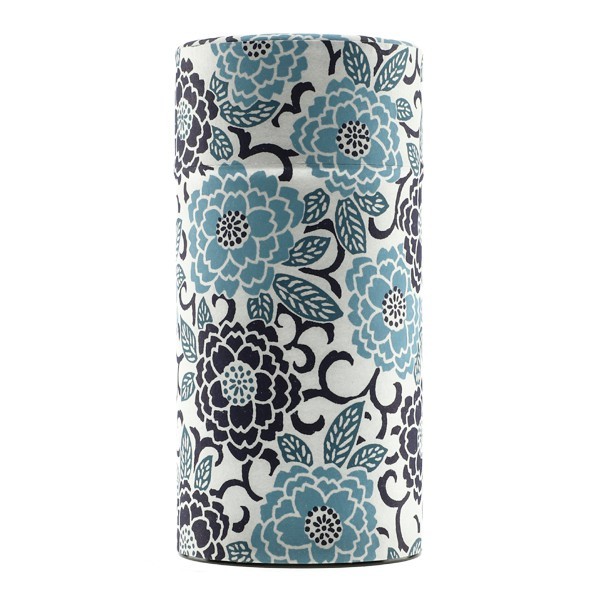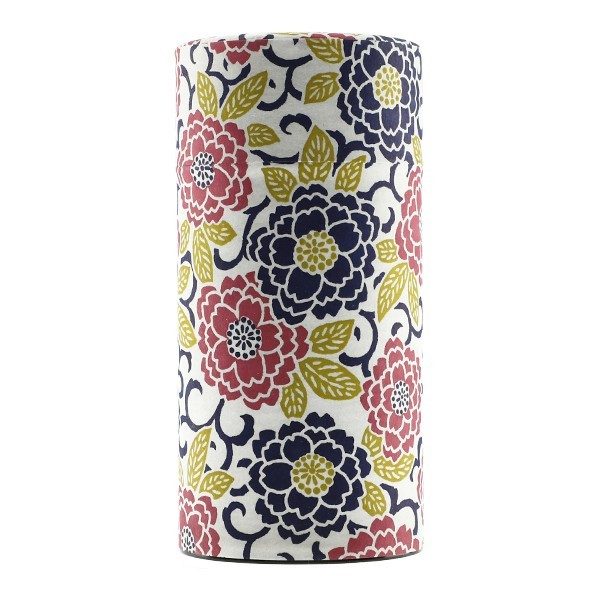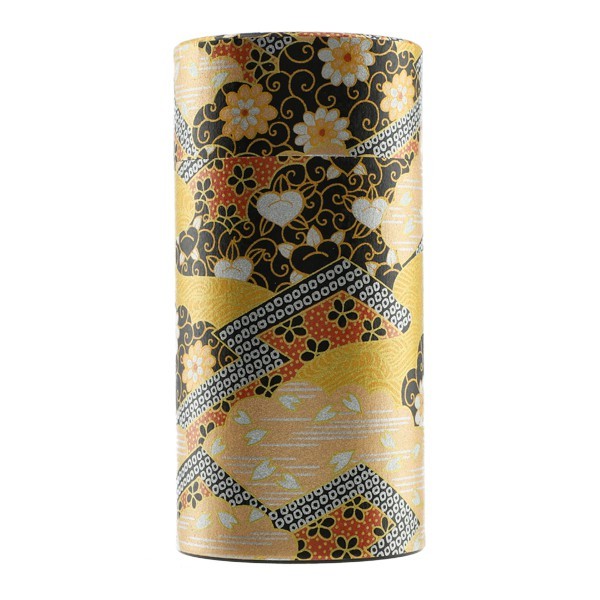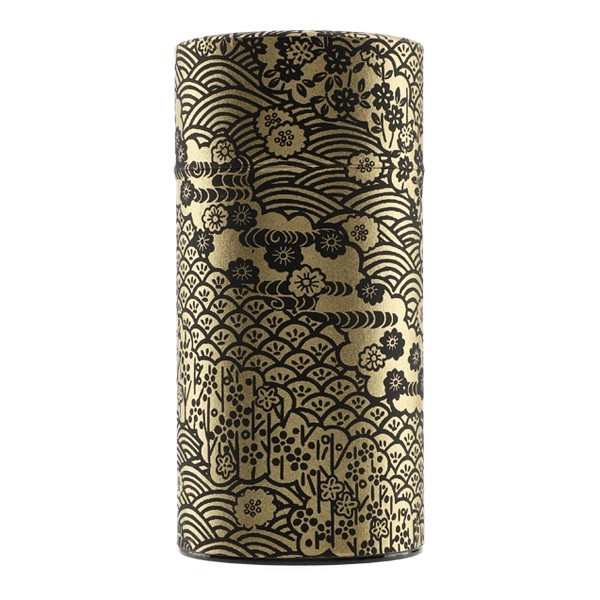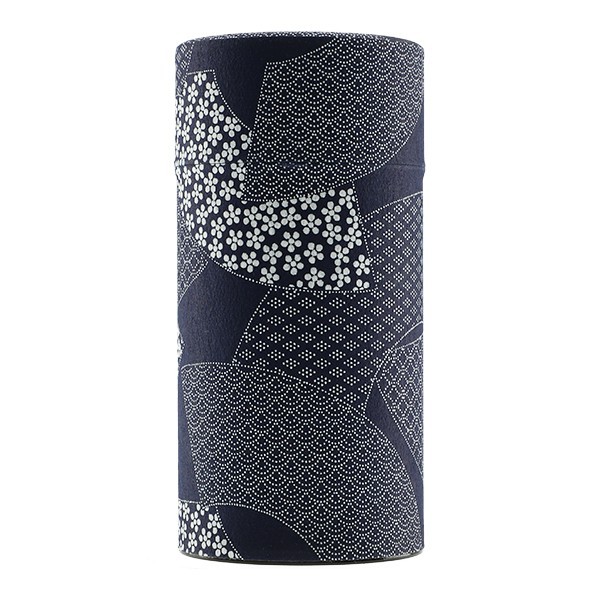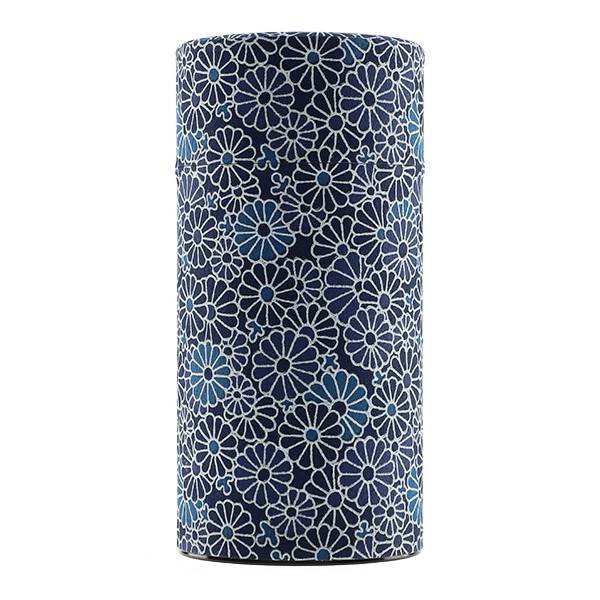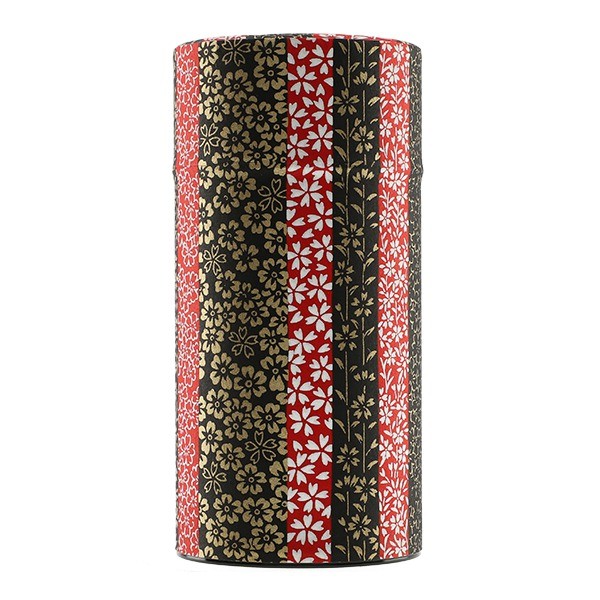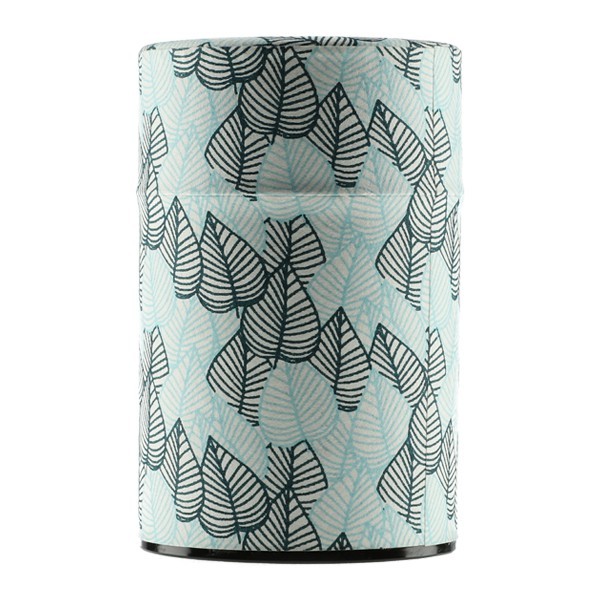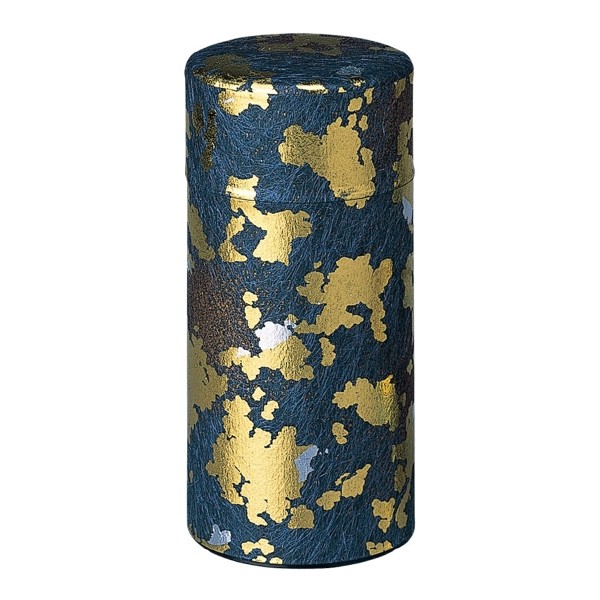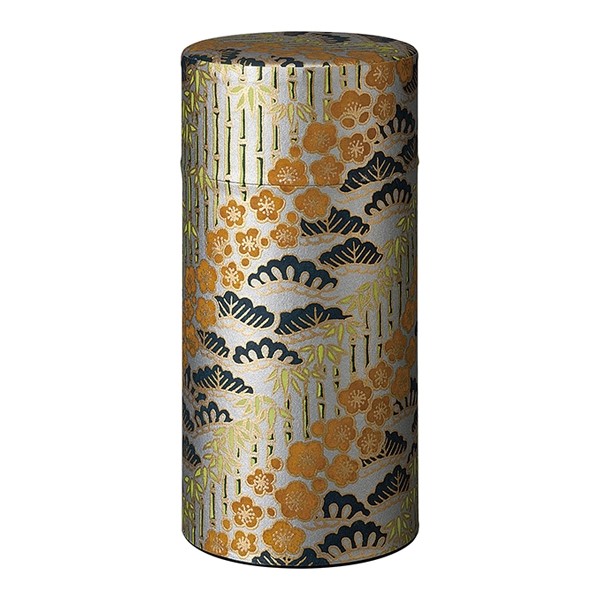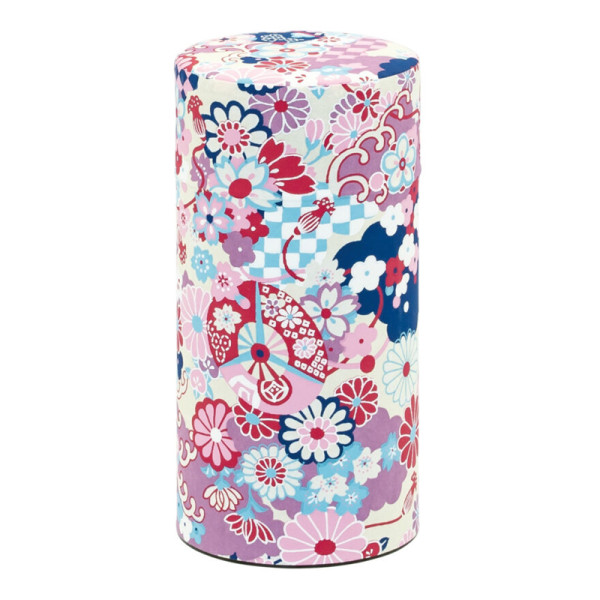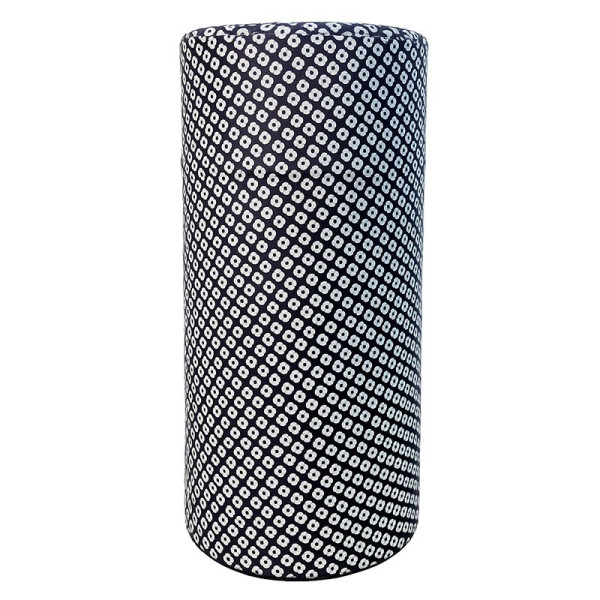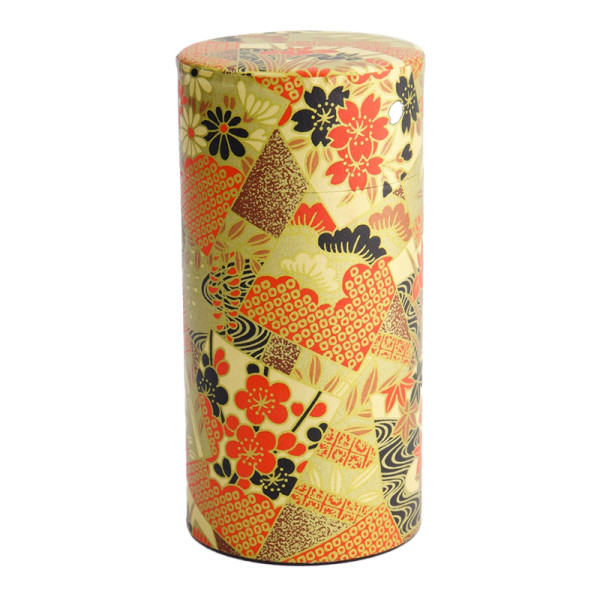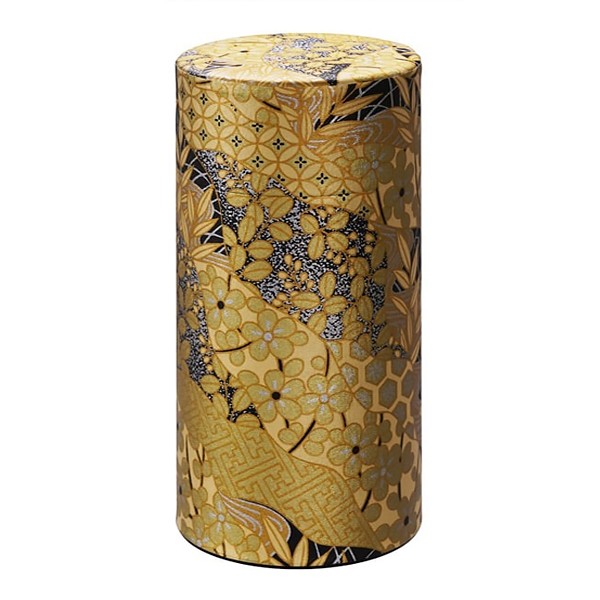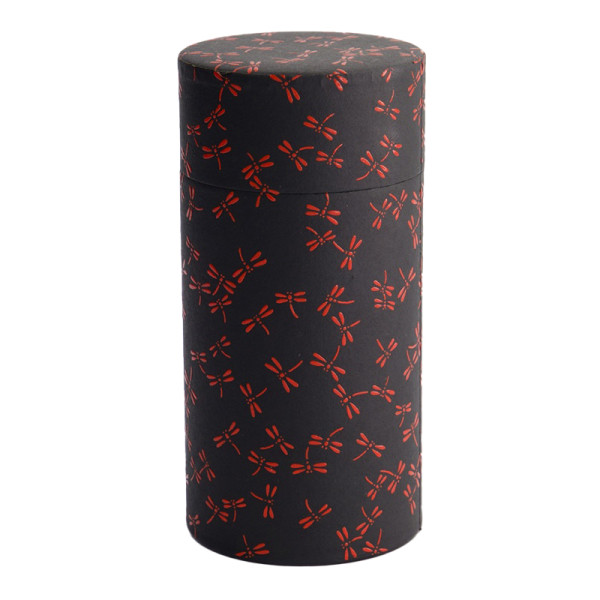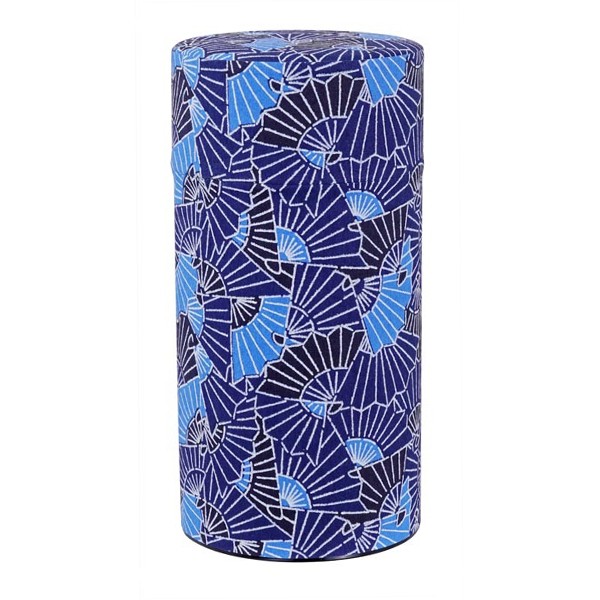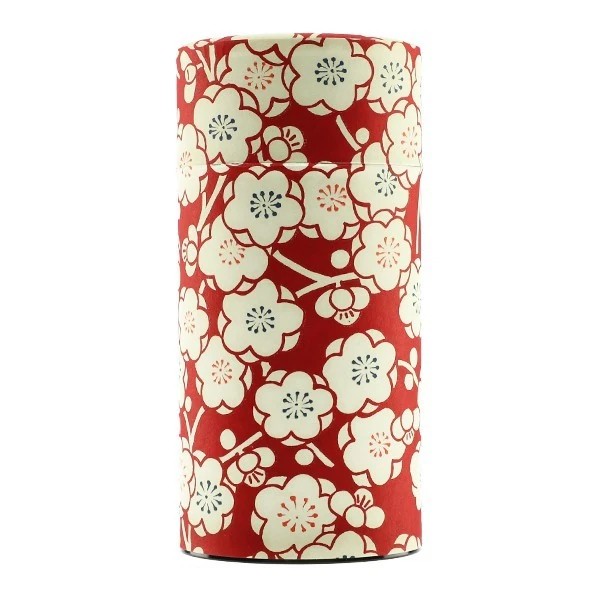Washi tea tin
Tea lovers, imagine opening a Japanese tin covered with traditional washi paper: light catches the sakura patterns, dragonflies dance on a blue or red background, and already the aroma of the leaves is released. More than just a kitchen item, the washi tea tin embodies Japanese art, culture, and craftsmanship. Made of sturdy metal and covered with artisanal yuzen paper with natural fibers, it protects your loose green, black, or white teas thanks to its double airtight lid that preserves aromas and flavors.
The washi tea box perfectly embodies the alliance between functionality and beauty in Japanese tradition. Made of metal and covered with artisanal washi paper, it transforms tea storage into a true art of living. Beyond
What is a Washi Tea Box?
A washi tea box ingeniously combines metal and Japanese paper to create an exceptional airtight container. This fusion between modern material and ancestral expertise offers a perfect solution for storing green tea, black tea, or any other loose-leaf variety.
Origin of Japanese Washi Paper
Washi paper derives its name from "wa" (Japanese) and "shi" (paper). Listed as UNESCO intangible cultural heritage since 2014, this artisanal paper is made from mulberry fibers, bamboo, or other natural plants.
Master Tanaka, a fourth-generation craftsman in Kyoto, shares: "Each sheet of washi tells a story. The sakura patterns we create evoke the ephemeral beauty of Japanese spring, transforming each box into a unique work of art."
This artisanal process requires expertise passed down through generations, ensuring unmatched quality and beauty in each creation.
Washi Tea Box Specifications
The design of these boxes features a double lid system ensuring optimal airtight sealing. The metallic structure protects against moisture and light, while the washi paper adds a refined aesthetic dimension.
This unique combination perfectly preserves the organoleptic properties of tea, keeping flavor and aroma intact for months.
The benefits of a Washi tea box
Investing in a Japanese tea box made of washi paper represents much more than a practical purchase. It's choosing excellence in preservation while acquiring an authentic piece of art.
Optimal tea preservation
The metal effectively protects against three enemies of tea: air, light, and moisture. According to tests conducted by the Japanese Tea Institute, these boxes preserve 94% of taste properties after 6 months of storage, compared to only 67% for conventional packaging.
The airtight seal prevents any contamination from external odors, ensuring a pure infusion with each tasting.
Japanese artisanal elegance
Each pattern has its symbolism: cherry blossoms evoke renewal, stylized waves represent quiet strength, while dragonflies symbolize luck and prosperity.
This cultural richness transforms your daily ritual into a moment of contemplation and serenity.
A decorative object and ideal gift
Beyond their utility, these boxes naturally beautify your living space. Their timeless design blends harmoniously into any kitchen or living room, bringing a zen and refined touch.
Gifting a washi box means sharing a piece of Japanese culture while showing special attention to quality and authenticity.
The different types of Washi tea canisters
Our selection offers a variety of models suited to every need and aesthetic taste. Each canister reflects the excellence of Japanese craftsmanship.
By capacity (40g, 100g, 150g, 200g)
The available sizes perfectly adapt to your consumption:
- 40-100g: Perfect for discovering new flavors or storing exceptional teas
- 150-200g: Ideal for regular tea drinkers wishing to store their daily tea
This diversity allows for optimizing freshness based on your consumption habits.
By colors and patterns
Our collection includes creations with iconic patterns:
- Sakura: Delicate pink and white flowers on a traditional background
- Japanese waves: Inspired by Hokusai's famous art
- Dragonflies: Symbols of transformation and harmony
- Yuzen: Refined dyeing technique with vibrant colors
How to choose your Washi tea canister?
Selecting the ideal canister requires considering several essential criteria for a successful and lasting purchase.
According to your tea consumption
For daily consumption of herbal tea, rooibos, or tea, opt for capacities of 150g to 200g. Occasional enthusiasts or collectors will prefer smaller sizes allowing for a variety of tea types.
According to your aesthetic preferences
Traditional patterns like cherry blossoms are suitable for lovers of Japanese authenticity. More contemporary creations will appeal to those seeking a modern aesthetic while retaining the washi spirit.
Care and use of a Washi tea container
Maintaining the beauty and functionality of your washi container requires a few simple but essential precautions.
Cleaning and precautions
Gently clean the metal interior with a dry cloth. Protect and avoid any direct contact with water on the washi paper. For stains, use a slightly damp cloth and dab without rubbing.
Storage tips
Place your container in a dry location, away from direct light and temperature variations. This precaution helps preserve the colors of the washi paper and will maintain its optimal preservation properties.
FAQ about Washi tea containers
What is the lifespan of a Washi tea container?
With proper care, a washi container maintains its qualities for decades. The metal remains perfectly functional, while the paper retains its beauty with normal precautions.
Can you store anything other than tea in it?
Absolutely! These containers are perfect for storing coffee, spices, aromatic herbs, or any other product requiring airtight storage.
What's the difference between a washi container and a classic metal container?
Besides the exceptional aesthetic aspect, washi containers often feature superior interior finishing and a more refined closure system, ensuring optimal preservation.
